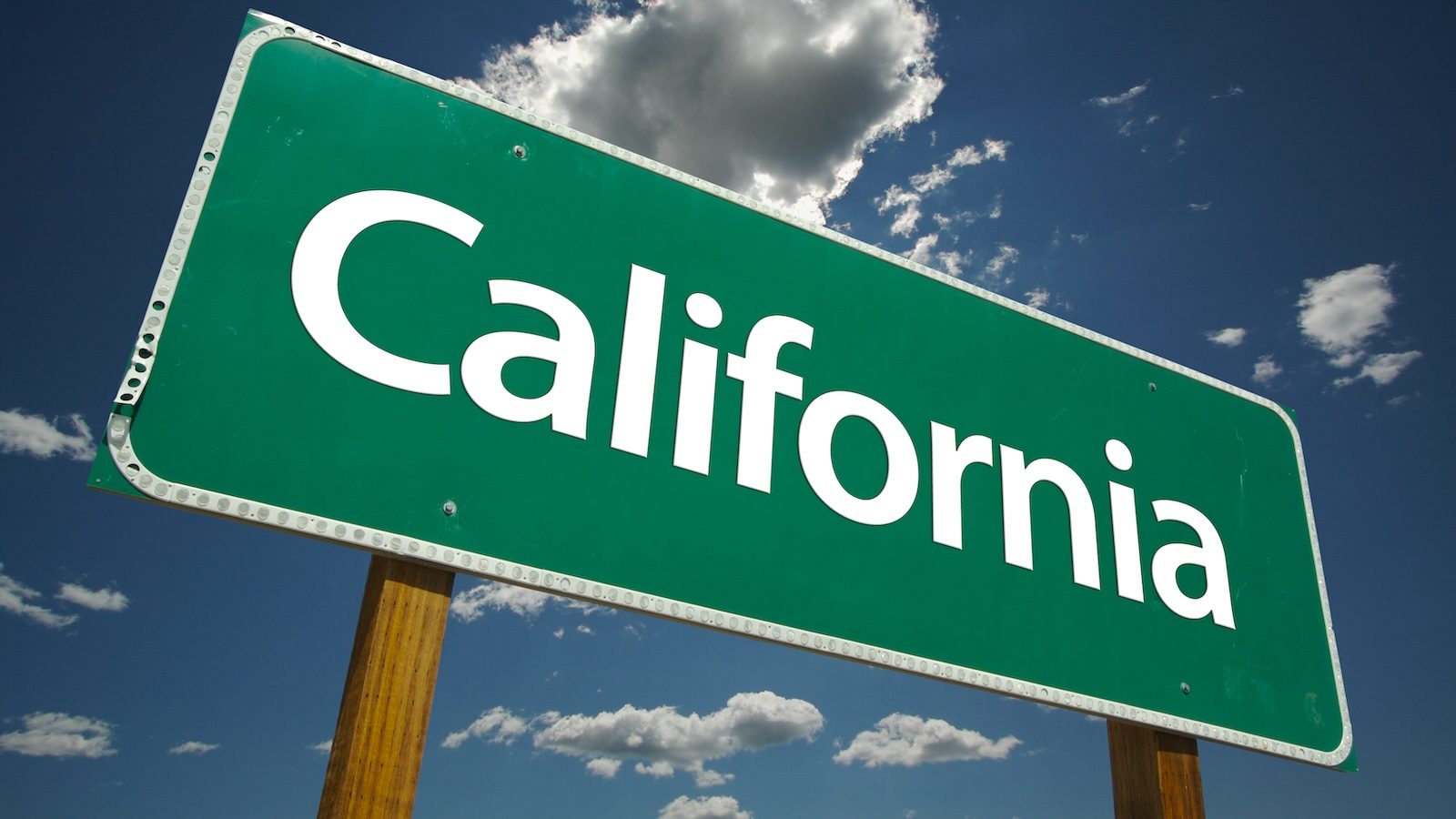California tribes and tribal gaming groups are not made from a stock that will back down from a fight, especially if it’s on home turf, especially not right now.
That was made clear again Wednesday on Indian Gaming Association Chairman Victor Rocha’s New Normal webinar about the threat of sweepstakes casinos, which are now targeted by a restructured piece of legislation that calls for them to be banned in the state. Said California Nations Indian Gaming Association (CNIGA) Chairman James Siva during the program (emphasis added):
“I fully expect, if we’re able to get this bill through this session, there’ll be a legal challenge in court, and that’ll tie it up and nothing will be resolved yet. But, we have so much going on, and CNIGA’s kind of at the nexus of all of these things, with sports betting, with sweepstakes, with [the Commodity Futures Trading Commission]. But again, because of that, I think everyone is on high alert, and everyone knows now is the time to take action.”
High alert indeed. For the last couple years in particular it’s felt like a nonstop battle for tribal gaming interests in the Golden State — with changing and multiplying opponents. Siva called it a “key moment” for tribal unity. And Indian Country has collectively wielded some raw political power to maintain its grip on its exclusivity of regulated gambling, as evidenced by the activity in Sacramento.
Upon that backdrop, we set out to take stock of the various opponents — from in-state cardrooms down to DFS, which after a decade of gray-area operation in the state may be banned, as Attorney General Rob Bonta’s office is expected to offer a legal opinion that daily fantasy sports games are not legal in the state. Included is a synopsis of each fight, the opposing force, actions taken on both sides, and the relative stakes.
1. Cardrooms
While not front and center during the latest webinar, the roughly 66 active cardrooms across the state are, the tribes say, the longest-running and most direct threat to tribal casinos. For starters, dozens of cardrooms are physically present in the state. They offer, controversially, some of the same or similar table games. And they generate a lot of taxable revenue that is central to the budgets for public services in numerous California municipalities. They are not without some clout of their own.
But the tribes have gained the upper hand in this battle, fresh of a victory in September 2024 when Gov. Gavin Newsom signed Senate Bill 549, the Tribal Nations Access to Justice Act. The bill creates a unique, one-time legal cause of action against the cardrooms that previously eluded them as sovereign nations without standing. The law gave tribal groups six months — until April of this year — to file suit against cardrooms and allow the courts to determine whether these establishments are operating in violation of state law.
The tribes didn’t wait until April. The suit was filed against all of the cardrooms Jan. 2 by a coalition of tribes including the Yuhaaviatam of San Manuel Nation, Agua Caliente Band of Cahuilla Indians, and the Pechanga Band of Indians. They argue that cardrooms are circumventing state law through the use of third-party proposition players (TPPPs) — hired hands who act as player-dealers.
From the complaint:
Defendants brazenly profit from illegal gambling. California law prohibits cardrooms from offering “banked” casino games—such as blackjack, baccarat, and pai gow—where an entity with an odds-based advantage takes on all comers, pays all winners, and collects from all losers. Under tribal-state compacts, California Indian tribes have bargained with the State (and pay) for a gaming system that facilitates their exclusive right to offer such banked games within California. But for years, California card rooms and their partner third-party proposition players have ignored the law and refused to recognize tribes’ exclusive rights. Instead, they have reaped illegal windfalls by offering banked games that are barred by the California Constitution, California Penal Code, and relevant judicial decisions. Plaintiffs bring this lawsuit under the recently enacted Tribal Nations Access to Justice Act to stop Defendants’ exploitative abuses.
Cardrooms maintain that the use of TPPPs complies with state regulations, and they are fighting back in court in what may be a protracted legal battle.
Speaking of regulations, other changes have proceeded on a separate track and may also alter the landscape for cardrooms. Bonta’s office has proposed regulations that would modify the rulebook for blackjack as well as player-dealer requirements.
2. Sweepstakes casinos and sportsbooks
While cardrooms have been a longtime foe, with that litigation now in progress, online social casinos using sweepstakes prizing, a.k.a. sweepstakes casinos, have perhaps supplanted cardrooms as the top priority.
Over the past roughly eight months, since the Global Gaming Expo when the sweepstakes model proved the buzz of the conference and a magnet for investment dollars, tribal groups have focused attention here. So have regulators and officials in New York, Michigan, Montana, and West Virginia, among others, but the tribes certainly have noticed too, and girded for a fight that has coalesced into California Assembly bill AB831, which would ban sweepstakes casinos and various cogs in their ecosystem.
“Tribes are the operators in California,” Siva said in October 2024, in a discussion focusing on sweeps casinos. “Any new entry of gaming into California begins and ends with the tribes. That’s it. That’s the reality of gaming in California. You may not like it, but you will respect it. You may not do it right now, but you will respect it at the end of the day.”
“We’re not saying that you can’t come to California eventually,” Rocha said at the time. “We’re saying you have to go through the tribes. So, what they’re doing right now is they’re not doing tribal partnerships, a violation of the tribal exclusivity, and that’s where they’re going to get in trouble. That is where the tribes have been very adamant that this is our territory and we will fight anyone, anytime, anyplace, anywhere.”
California’s regular session runs until Sept. 12, while AB 831 is already on third reading in the Senate. The bill originated in the General Assembly as a tribal bill that would extend the amount of time for a state-tribal compact to be approved. But last Monday, the Senate stripped the original text and replaced it with language that would prohibit sweepstakes in the state. It would have to go back to the General Assembly for approval of the changes.
3. Prediction markets
Online prediction markets where patrons trade binary contracts and risk money on the outcome of events in politics, entertainment, and sports represent a rapidly rising threat that goes to the heart of tribal sovereignty and exclusivity. It is unique because the platforms are registered with and regulated by a federal agency — the Commodity Futures Trading Commission (CFTC) — and not currently subject to any state-based gambling rules and regulations, nor are they paying any state taxes. The role of state regulators is very much in dispute in multiple jurisdictions.
Prediction markets are not only a concern for California tribes, but tribes across the entire U.S., plus state regulators and various other stakeholders. In recent weeks, a coalition of tribes submitted an amicus brief to federal courts in Maryland and New Jersey, where Kalshi has sued state officials after receiving cease-and-desist letters.
The tribes wrote in the lawsuit that is currently on appeal in the Third Circuit (originating in a New Jersey district court) with the lower court having granted Kalshi’s motion for a preliminary injunction to continue operating while the case proceeds:
“KalshiEX LLC’s (“Kalshi”) unlawful and unfair entrance into the gaming market has adversely impacted tribal gaming revenue and the benefit of tribes’ bargained-for compacts. … Additionally, by offering its so-called sports event contracts under the guise of commodity trading pursuant to the Commodity Exchange Act (“CEA”), Kalshi impedes tribes’ inherent sovereign right to regulate gaming activity on Indian lands. Contrary to Kalshi’s arguments: (1) the CEA does not govern its gaming-related sports event contracts; (2) such contracts are expressly prohibited by the CEA and Commodity Futures Trading Commission’s (“CFTC”) own regulations; and (3) federal, state, and tribal gaming laws therefore apply to the contracts (including IGRA).”
Online prediction markets may even be the most significant threat overall, at least in terms of the nature and radius of the impact an unfavorable legal outcome would produce.
Basically, if Kalshi et. al. prevail and the courts determine that the CFTC does have exclusive jurisdiction over prediction markets, the courts would be saying that the Commodity Exchange Act (CEA) preempts the seminal Indian Gaming Regulatory Act (IGRA) of 1988 that is central to the jurisdictional framework for tribal gaming in the U.S. That would not be a not a great precedent for tribal gaming interests.
The leading prediction markets have taken a sharp turn into the sports realm since a favorable November 2024 court ruling that allowed the trading of political contracts, steadily expanding the menu of sports-based offerings while the CFTC has said little, done less, and signaled a willingness to let the status quo continue.
So if prediction markets gain federal reach and the ability to offer what is, in effect, sports betting, it is both bad precedent and a direct incursion into an area that the tribes have spent at least seven years evaluating. Speaking of sports betting …
4. Commercial online sports betting groups
Into this bucket goes the U.S. online sports betting (OSB) duopoly of DraftKings and FanDuel, which in 2022 got its ballot initiative to legalize OSB in the state demolished, 86-14%.
That drubbing eventually gave way to an ongoing apology/understanding tour by executives at both companies which, by the way, are not only OSB giants but also the leading purveyors of regulated iGaming in jurisdictions where allowed, and allow DFS contests in the state as well.
The tribes and the Sports Betting Alliance (SBA), consisting of the duopoly plus BetMGM, Fanatics Sportsbook, and recently bet365, are exploring frameworks for a potential partnership with the tribes in California. In this scenario the commercial groups may use the strength of their brands for everyone’s benefit, but ultimately the tribes will be the drivers if they do collectively pursue this route.
So the current state here is either an impasse or a truce. Yet some of the SBA members are also eyeing the potential prediction market opportunity as both a pathway to lessen their ever-increasing tax burden, and as a way into California (and Texas and Florida) without having to come to terms with tribes. For that reason and the potential for conflict here in the online casino realm, we ranked them first off the podium, leaving:
5. Daily fantasy sports (2.0 and 1.0) platforms
The leading DFS 2.0 players are PrizePicks, Underdog, Sleeper, Betr, Chalkboard, and Dabble. Traditional, lineup-based daily fantasy sports has taken a distant back seat at DraftKings and FanDuel while DFS has maintained a core audience. These other companies have continued to innovate in the space with product offerings like statistical over/under pick’em games that resemble parlay wagering and are popular in the so-called DFS 2.0 realm.
It is probably the latter product, and not the original DFS formats, that spurred the AG activity, yet the entire kitchen sink may get launched anyway.
While the tribes themselves have shown little if any interest into the DFS product arena, again, they will fight back to enforce any real or perceived incursion of their exclusivity and sovereignty in California.
While Kalshi has racked up a couple of early legal wins that are potentially vast in scope, putting the tribes overall on “high alert,” we surmise that the tribes have decided to pull levers at home in California with both the AG’s office and the legislature. In fact, last week Indian Country delivered a letter to the legislature urging it to wait on enabling legislation for DFS until Bonta’s opinion drops.
And so we wait for the sound of that shoe.
Other gambling threats/opponents that didn’t make the rankings: crypto sportsbooks/casinos, offshore sportsbooks/casinos, other illegal bookmakers, the California Lottery, and purely “social” casinos like the kind targeted in Washington State.






